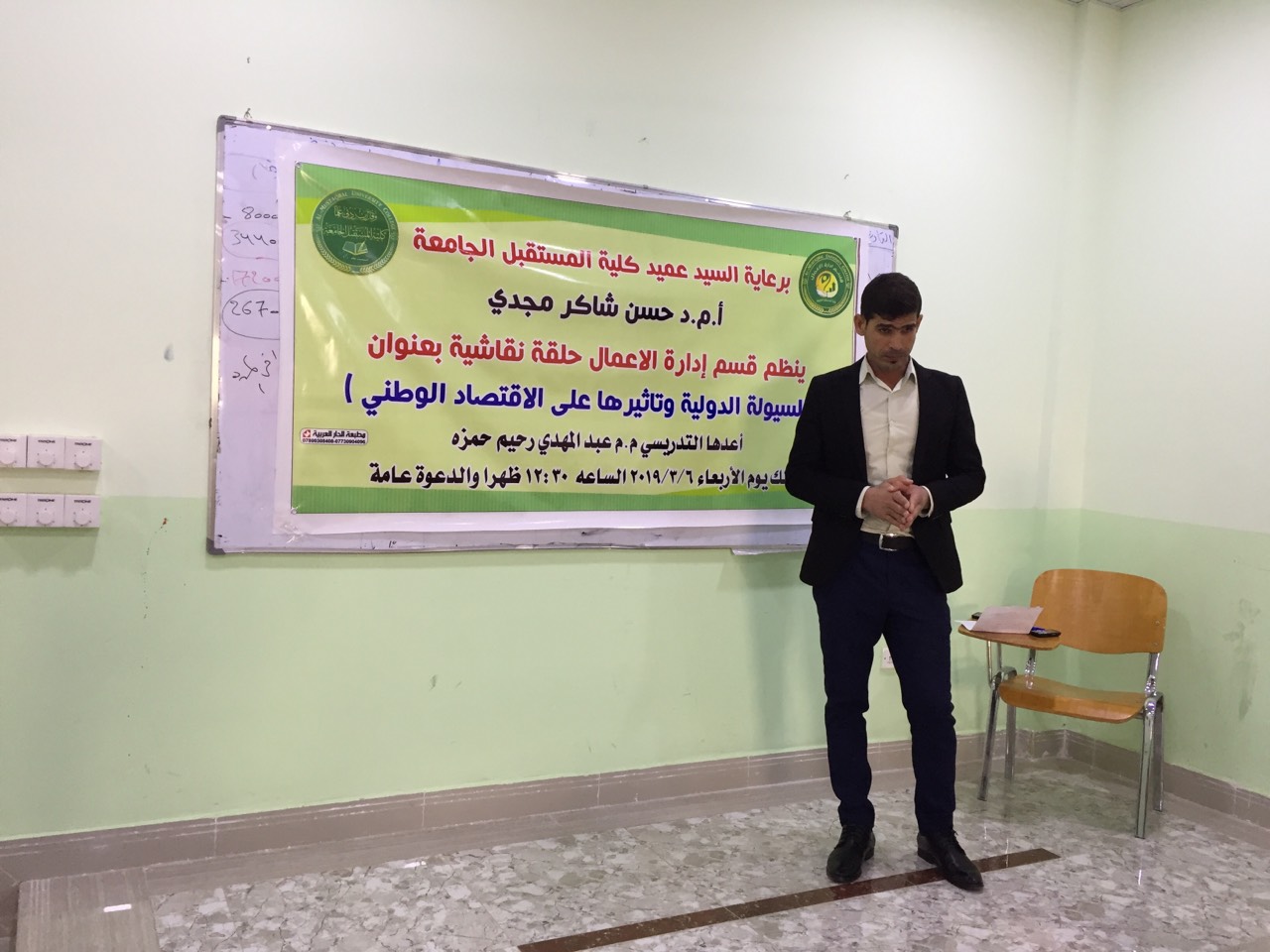
|
Thomas Malthus and Population Theory
Adding Date: 14/06/2022
Views: 842
Published by: Al-Mustaqbal College Administration
|
Thomas Malthus and Population Theory
Eng. Abdul-Mahdi Rahim Al-Owaidy / Department of Business Administration
Thomas Robert Malthus was a famous 18th century British economist known for the philosophies of population growth outlined in his 1798 book, An Essay on the Principle of Population. , Malthus hypothesized that population will continue to expand until growth stops or is reversed by disease, famine, war, or disaster. He is also known for developing an exponential formula that is used to predict population growth, currently known as the Malthusian Growth Model , an exponential formula used to predict population growth The theory states that food production will not be able to keep pace with population growth, leading to disease, famine, war and disaster . Malthus, a well-known statistician and proponent of political economy, founded the Statistical Society in London .
Population Theory
Philosophers widely believed that humanity would continue to grow and tend toward utopia. Malthus disputed this belief, arguing that segments of the general population had always been poor and miserable, significantly slowing population growth . After studying conditions in England in the early nineteenth century, Malthus wrote An Inquiry into the Nature and Advancement of Rent (1815) and Principles of Political Economy (1820), as He said that the available agricultural land is insufficient to feed the increasing world population , and Malthus specifically stated that the population is increasing in a geometric progression , while food production increases in a numerical sequence , and therefore humans will eventually not be able to produce enough food to support themselves .
Malthus also believed that the working classes worked hard, so there was a case to sacrifice part of the national wealth and population , but he doubted that would happen, in part because it would be wrong to impose force. People have to work less and not benefit from the only property - labour - that they own. Later in Classical Economics, J. W. Stuart Mill, in Book Four, similarly questions the pursuit of economic growth through the infinite pursuit .
As a utilitarian, a person who thinks about the consequences of human action practices rationality. Malthus anticipates the neoclassical school by considering economic decision-making as a balance between pleasure and pain in the forms of happiness and misery , This grand strategy for solving the population problem requires heroic assumptions. Everyone, especially those he calls the "lower classes," must be rational and insightful , and the benefits and harms must be observable or measurable.
directed The criticism came As the population continued to increase , technological advances and immigration ensured that the percentage of people living below the poverty line continued to decline. Moreover , global interdependence has helped stimulate the flow of aid from food-rich countries to developing regions . In India, which has the second largest population in the world, the green revolution in Punjab helped feed its growing population. In Western economies such as Germany, which was
|
|
|
|